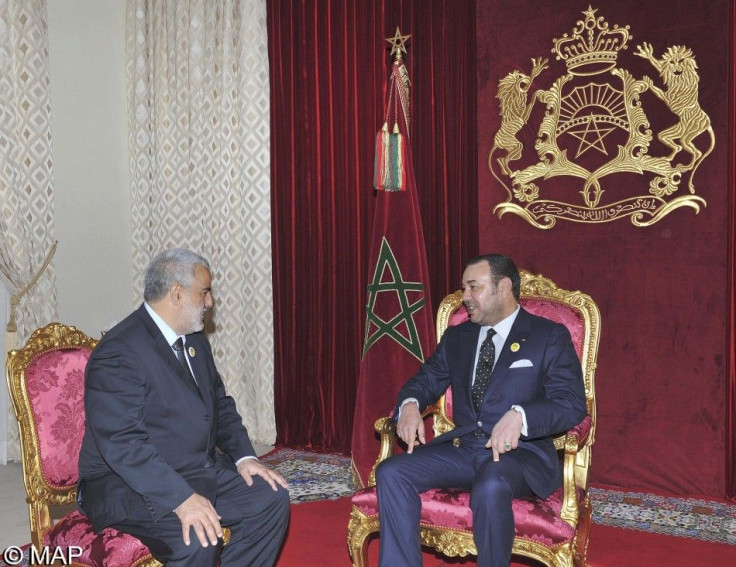Moroccan King Appoints Islamist Leader as New Prime Minister

Following the wave of pro-democracy demonstrations across the Middle East that have led to free and fair elections, Morocco's King Mohammed VI appointed the leader of an Islamist party to be the country's new head of government Tuesday.
The Justice and Development Party (PJD) won the most votes Friday in a landslide, winning 107 seats out of 395 in the national parliament.
On Tuesday, King Mohammed VI received Abdelilah Benkirane, the secretary general of PJD in the mountain town of Midelt and named him Prime Minister and gave him the task of forming a new government for the North African kingdom of 32 million, The Associated Press reported.
The victory of the PJD is an historic step toward democracy, this is a point of no return, Benkirane said at a news conference on Sunday.
Benkirane was elected head of his party in 2008, heading up an opposition party whose role in leading Morocco's government would have been unimaginable a year ago. The Arab Spring movement, however, prompted the king to reform Morocco's constitution -- a constitution that now gives the prime minister more powers to govern.
According to its Web site, the PJD previously participated in elections in 1997, 2002, and 2007. The party won 46 seats in 2007 and 52 in 2002, after taking only nine seats in 1997, CNN reported.
A former managing director of three newspapers and a father of six, Benkirane, tends to lead a more pro-monarchy faction, many times emphasizing his support of the king.
The head of the state is king and no one can govern without him. If someone can do it, it is certainly not Abdelilah Benkirane, he told supporters Sunday after his party's victory was announced.
The PJD, originally known as the Mouvement Populaire Démocratique et Constitutionnel, or MPDC, was founded in 1967 by Dr. Abdelkrim Al Khatib, a physician of current the king's father.
The party's win is yet another for Islamist parties in the Middle East. Tunisia's Islamist Ennahda Party won in an election there last month, and voters in Egypt are turning out to vote in an election widely expected to boost Islamist parties.
But according to Lisa Storm, a senior lecturer in Middle East Politics at the University of Exeter in England, the PJD is more moderate than Turkey's governing Justice and Development Party or Tunisia's Ennahda Party.
The PJD's online mission statement listed three values -- authenticity, justice and development -- and makes little mention of Islam.
Authenticity has to be consistent with our values, culture and civilization, with the incorporation and respect for the cultural, linguistic and ethnic groups, within the space of the Islamic brotherhood, the statement said.
In Friday's election, only six million people out of a potential electorate of 21 million voted -- many boycotting out of disgust or apathy with what is perceived as a corrupt political system, the AP reported.
The PJD is aware that the political situation in Morocco is very tense, Benkirane said on Sunday. I promise a strong government that will give hope to Moroccans.
© Copyright IBTimes 2025. All rights reserved.





















